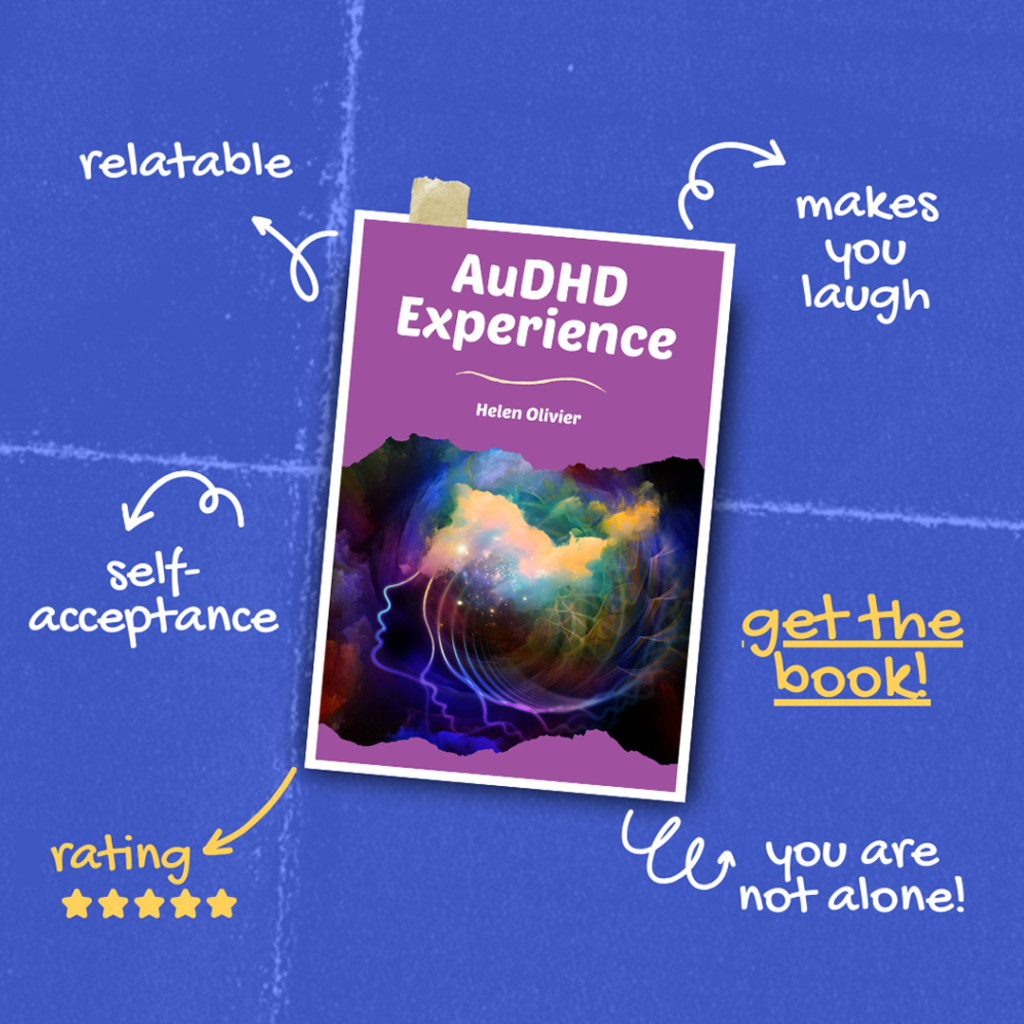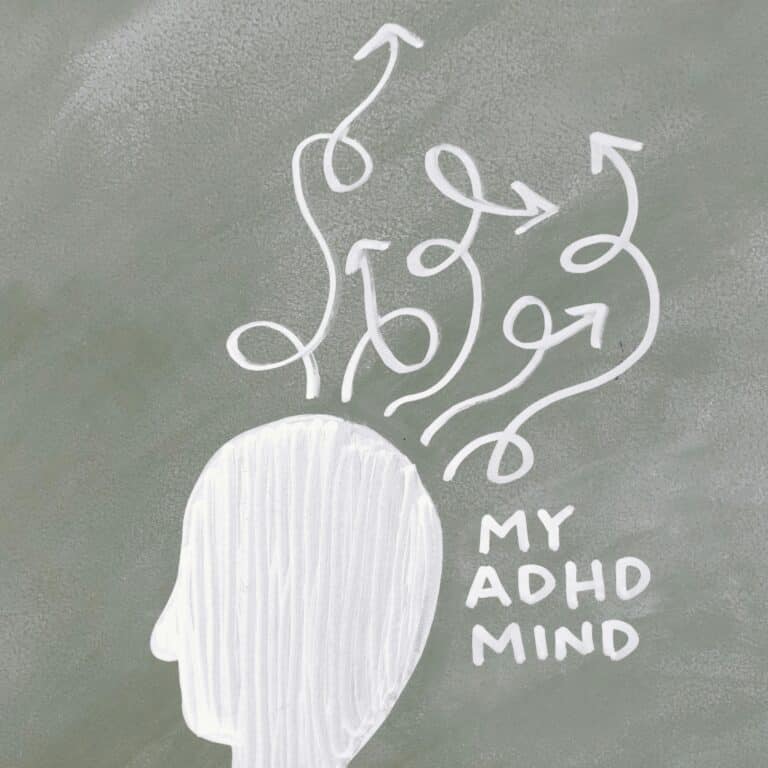Disclaimer:
Every autistic person is different and my experiences don’t represent the experiences of every autistic individual. As the saying goes, “When you know one autistic person… you know one autistic person.” But I hope there are enough similarities that will enable other autistic people to use this text to help their loved ones understand them better.
So, here goes:
Dear mum,
I know you are confused about my recent autistic diagnosis. It’s difficult to adjust your view of someone you have known all their life – I know because it was difficult to adjust my view of myself. It took me some time and I understand that it will take you some time as well. But now I embrace my autistic identity and I would like you to understand it better.
Please, don’t imagine autism as the media portrays it. It’s usually far removed from reality. Instead, read books from autistic authors, follow the Facebook pages of autistic advocates, join a Facebook group for the relatives of neurodivergent people. You can learn a great deal about people like me from people like me.
Oh, and please, in your search for more information, don’t give your attention to Autism Speaks. They are people who are not autistic, and yet they try to speak for us. Don’t embrace their puzzle piece symbol for autism. (There is a beautiful rainbow-colored infinity symbol that actually autistic people choose for themselves that you can use instead.)
So what is autism and what it isn’t?
First, autism isn’t a disease. It isn’t something I can be cured of. It’s a neurotype – how the neurons in my brain are connected. It’s the kind of brain I have. It can’t be separated from my identity – there isn’t “the autism” and “the real me”. Instead, there is just the autistic me. I have been this way all of my life, I just didn’t know it. That’s why autistic people don’t like to be called “a person with autism”, but “an autistic person”.
It was a relief for me to get diagnosed because all of my life I have felt like I’m failing. Failing life, failing to be a human, failing the people around me. Now I have learned that it isn’t my fault – and it was a great relief for me.
I needed to mourn the dream that someday, thanks to the therapy, I would “be normal”. Maybe you will need to take some time to mourn it too. It’s okay if you need some time to learn to accept me as I am. There isn’t such a thing as “normal” anyways. Everyone is unique in their own way. And my autistic brain allows me to see the world from a unique perspective, which is a gift.
Why I need accommodations
I won’t lie, there are also many problems autistic people face in their daily lives. Our society isn’t made for someone like us. We can get PTSD just from living. There is a theory that if autistic people lived in a world adjusted to their needs, they wouldn’t have meltdowns or shutdowns. We could be content and happy and live life the way we need. That’s why we need accommodations. To live up to our best potential. To live happily.
Instead of “normal”, I now simply aim to get better. To work with my mental illnesses that were probably born of untreated autism, or are comorbidities. They can be cured, at least to an extent. Unmasking also helps a lot with the mental health of autistic people. I will get into that later.
Meltdowns and shutdowns
We are extremely sensitive to our surroundings. We are also easily emotionally distressed. Sensory overload and big emotions can easily overwhelm us, leading to either a meltdown or a shutdown.
A meltdown is something that comes when I’m so full of stress I can’t take it anymore. I fall apart. It may seem like a tantrum from the outside. It isn’t. It isn’t something I decided to do and it couldn’t be controlled by willpower. That’s why I need you to understand my meltdowns and not shame me for them. Please, do not say I “make a scene” when I have a meltdown! It’s very hurtful. My meltdowns usually look like uncontrollable crying or shouting, sometimes hitting my head with my fists. But for different autistic people, meltdowns can look different.
A shutdown is when I’m so exhausted from the sensory and emotional input that I just stop. I need to curl in a ball, shut my eyes, and stop perceiving the world. I can’t think, often can’t speak and sometimes I fall asleep from exhaustion.
Situations that can be just a little stressful or even normal for other people can trigger a meltdown or shutdown for me. My limits are different and I need you to understand it and acknowledge it. My limits can change depending on my capacity for stress, how much it has been filled at that moment, and my overall mental health. Several years after my diagnosis, I have a pretty good understanding of where my limits are, so when I tell you something is difficult for me or I can’t do something, I need you to accept it as a fact. When I explain what is stressful to me (e.g. new environments, situations, and people), I need you to listen to me. It’s so frustrating when I take so much time and make so much effort just so that other people would understand, and they still can’t fathom that many things can cause higher levels of stress for me than for others.
You may have noticed I didn’t always have meltdowns and shutdowns. (Even if those “tantrums” that you tell me I threw as a child were very probably meltdowns.) The strength and frequency of manifestations of my autistic traits very much depend on the level of stress I face in life. When I don’t feel too stressed, some of my autistic traits may not be so prominent. But when I’m in a bad place mentally, they can emerge with great force. It doesn’t mean I suddenly “became more autistic”. It means that life got harder for me.
Masking and unmasking
This brings me to the reason why I wasn’t diagnosed earlier: masking. A lot of autistic people do it and for some reason, women’s brains are better at hiding the signs of autistic behavior. I learned to mask my autistic traits so that people would accept me. A lot of my social skills don’t come naturally, but they are learned the hard way: when some of my behavior elicited a strong negative response, I learned to hide that behavior.
Masking is very bad for our mental health. When we are diagnosed, we often set out on the long journey of unmasking. This can be a long process, but for most of us, a necessary one. Unmasking is the reason why I may appear “more autistic” after my diagnosis. Believe me, I just let go of suppressing my natural behavior and it’s a great relief for me.
Stimming
There are things that can help us regulate our nervous system, like physical motions, or sounds. Things like hand flapping, clapping, repeating words, making noises. Things that may seem weird to you, so I try to suppress them – but then my mental health suffers. Actually I have suppressed this need so thoroughly that I’m often not aware of this impulse for a regulation of my nervous system that for a healthy autistic person comes so naturally. But sometimes I do these things without thinking – and I need you to understand that this is a normal part of my behavior, even if it looks “weird” to you.
Executive dysfunction
Here I come to an extensive topic – executive dysfunction. It is common both with autistic people and people with ADHD. Once I read that always running late should be as strong an indicator for autism diagnosis as the lack of eye contact, and I burst out crying because I have struggled with it all my life. Executive functioning entails a lot of abilities from time perception and the ability to be on time, the ability to keep our homes clean and ordered, to organize our time.To have the motivation to start (and keep) doing a task. I struggle immensely with all of those things.
The lack of motivation is similar to depression, but different. I don’t feel depressed, I just think about something I’d like to do, maybe move to start doing it… and then all my motivation shuts down and there is an empty space where my motivation to do the thing should be. I can observe the empty place, even if makes me frustrated that I don’t have enough mental resources to do the things I need or want to do. It’s always worse when I’m exhausted from dealing with other things, either external or internal. After all, willpower isn’t an infinite resource and you can run out of it easily.
How can you accommodate me?
I have problems with sudden changes of plans. They make me anxious and unsettled and they consume a lot of my emotional resources, so I have little energy left for other things. It would help me if you strive to not make changes of plans at the last minute, and if there must be a change, give me time to deal with it. Accept that I will be having emotions around it and that it’s a thing that exhausts me, so we need to take it into account.
I like to have as much information about my future activities and environments as possible beforehand. For example, if I’m going to travel, it helps me immensely to see pictures of the place I will be staying in to get an idea of how it looks and what to expect. I like to know how the check-in process will go, etc. The information makes the uncertain future feel more controlled. I always feel calmer when I have enough information about what is going to be happening. And when I don’t, I’m stressed and tired.
Try to understand, to really listen and understand when I tell you I’m stressed by something or I can’t do something. Even if it appears like a trivial thing to you. It can be very different for me and I try to explain my circumstances so hard, but I often don’t feel heard. I hate when people tell me off for reacting according to my feelings and my limits. Understand that people are different, sometimes more different than you can imagine, and my reactions are just one flavor of different. But I am trying so much to communicate everything I know I have a problem with, and I need you to listen – and accept. I will never be your idea of what a “normal person” should be, even if I have learned to mask so nicely – I’m me, and I’m OK the way I am. I need you to accept me the way I am.
(Also, by the way – behavior is communication too. You just need to pay attention.)
~~~
Do you see yourself in this post? You might be interested in my ebook!
Having an AuDHD brain is a challenge. You fit some criteria for both autism and ADHD, but you don’t find yourself in them, not completely.
In some things, you are the complete opposite of autism. In some ways, you are the complete opposite of ADHD. And you always want two different things at once. You are constantly pulled in two completely opposite directions.
It’s exhausting. And difficult to navigate.
In the ebook AuDHD Experience, I talk about the constant inner conflict. About autistic days and ADHD days. About the AuDHD burnout and why it’s so hard to get out of it. About balancing these two very different sets of needs – and about self-acceptance, despite the odds. If you want to feel that someone gets you, this ebook is just the thing for you. Check it out now here!

Helen Olivier is a neurodivergent writer, AuDHD explorer, and professional overthinker with 40+ years of lived experience in the wonderfully weird world of ADHD + autism. She writes for people who’ve been told they’re “too much” or “not enough,” offering comfort, clarity, and the occasional executive dysfunction survival hack. Her blog is her way of turning daily chaos into useful insights for other neurodivergent folks.
This blog is based on personal experience and is not medical advice. Always consult a qualified healthcare professional before making changes to your health, treatment, or medications.
Helen Olivier is a neurodivergent writer, AuDHD explorer, and professional overthinker with 40+ years of lived experience in the wonderfully weird world of ADHD + autism. She writes for people who’ve been told they’re “too much” or “not enough,” offering comfort, clarity, and the occasional executive dysfunction survival hack. Her blog is her way of turning daily chaos into useful insights for other neurodivergent folks.
This blog is based on personal experience and is not medical advice. Always consult a qualified healthcare professional before making changes to your health, treatment, or medications.





